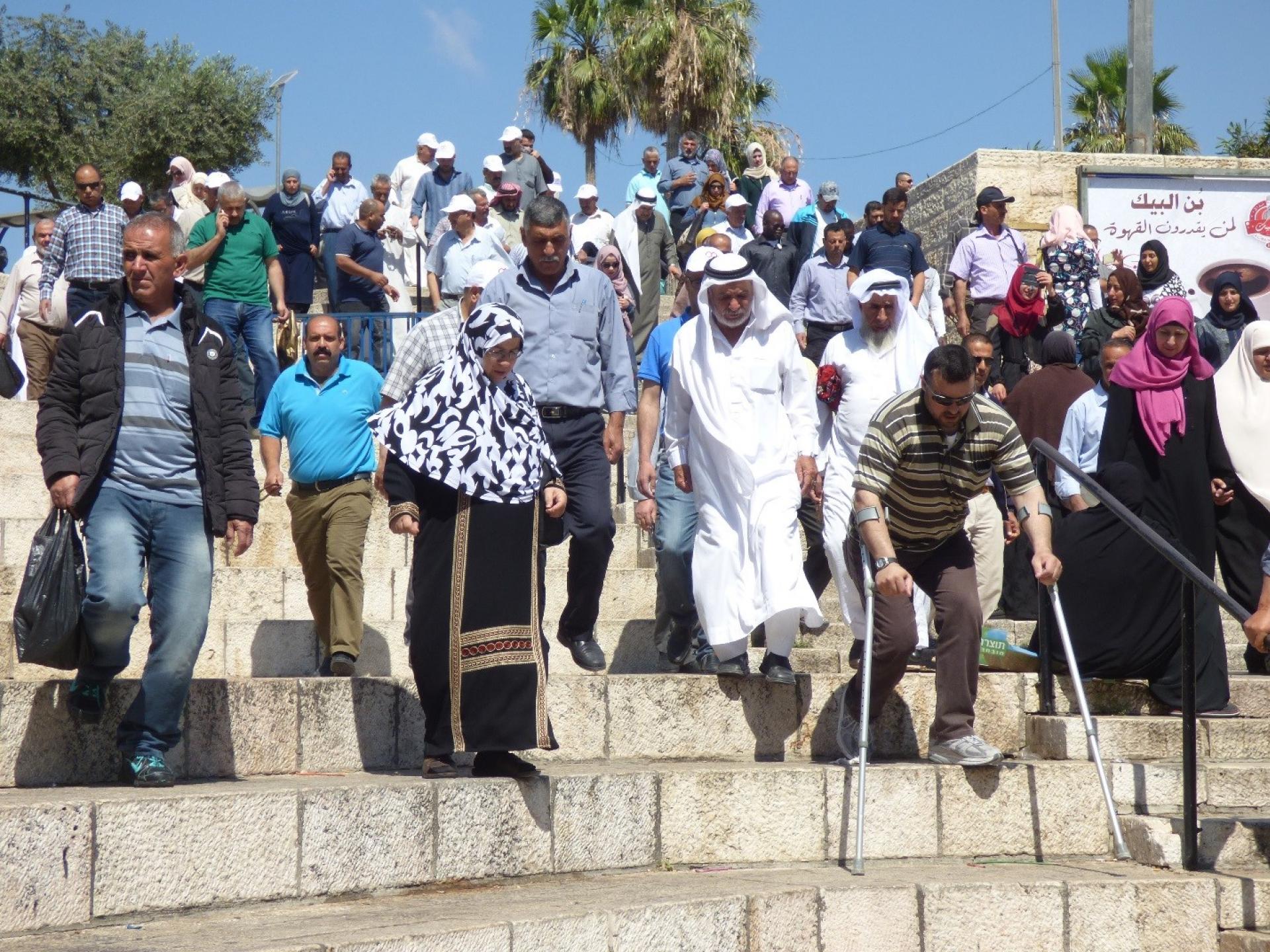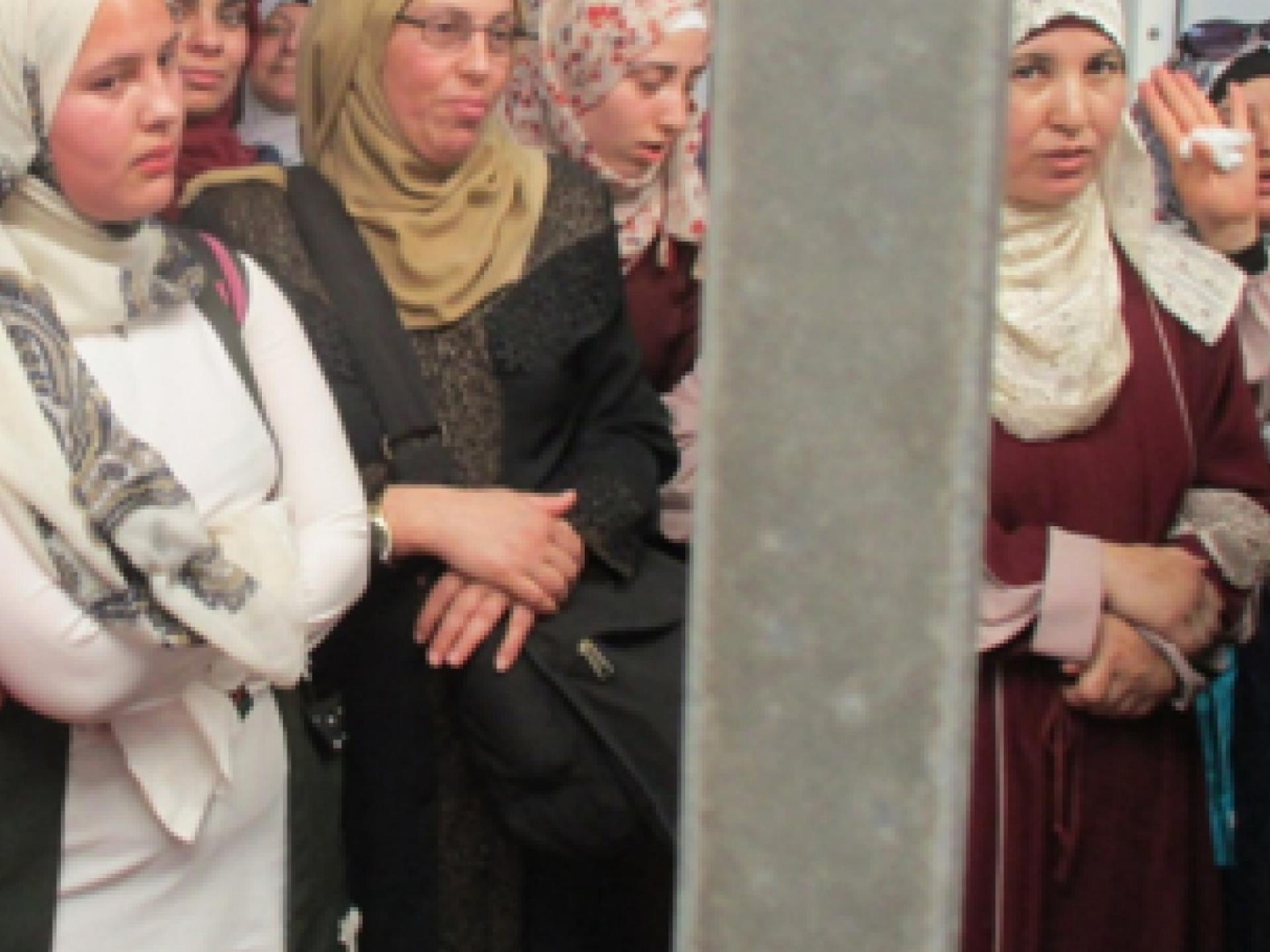Ramadan in May 2019 was filled with many challenges. The heat was especially heavy, waiting lines long and crowded, harsh bureaucratic restrictions of age and gender for entering Israel to pray at the Jerusalem Al Aqsa Mosque were especially difficult for Palestinian families eager to celebrate together. The massive presence of armed personnel at the checkpoints raised tension and frustration. Despite the many years of experience of the security forces, freedom of worship remains blatantly violated.
We witnessed all of this during our special shifts on Ramadan Fridays. In the Palestinian Jordan Valley, where the Israeli army’s maneuvers force Palestinian shepherd communities to evacuate their homes and spend days without shelter in the seething desert on Ramadan fasting and festival days of all times.
Ramadan is a festive month for the entire Muslim world.
In our country of diverse cultures and religions, awareness of Ramadan continues to increase. However, for the Palestinians, the hardships of the separation barriers and checkpoints continue to prevail.

The month of Ramadan is festive and intensive for Machsomwatch members as well. During this period MW activists from around the country come out for special Friday shifts at the Jerusalem checkpoints as well as at the gates of the Old City of Jerusalem. We monitor and report on the procedures controlling passage for women, men and children heading for prayer at Haram Al Sharif. The worshippers arrive in festive attire which is often white, in silence and with heightened spirits.
of the Old City of Jerusalem. We monitor and report on the procedures controlling passage for women, men and children heading for prayer at Haram Al Sharif. The worshippers arrive in festive attire which is often white, in silence and with heightened spirits.

The Palestinian people live behind fences and checkpoints, under military rule, and even during the festive month of Ramadan the way to prayer at the sacred mount involves restrictions of age and gender set by the Israeli government. There are inspections and crowded waiting lines, as well as unexpected arbitrary bureaucratic rules. At times, parents are separated from their children, the elderly from grandchildren who accompany them. Ramadan is also the holiday of family and friends’ get-togethers. Every family visit requires crossing a checkpoint and a fence, and the approval of armed Israeli soldiers.
This year, passage to prayers on the Temple Mount (Haram Al Sharif and the Al Aqsa Mosque) was unrestricted for men over 40 years of age, for women of all ages and for children up to 16 holding birth certificates and accompanied by a parent. Every year the army tries to post experienced, moderate officers at the checkpoints, who are able to keep things calm. But standing in the long crowded waiting lines in the intense heat, the frustrating presence in this military environment of soldiers, policemen and pointed guns, who are able at any given moment to approve or prevent one’s participation in the festivities – all create situations of humiliation and tension that sometimes escalate into violent clashes.

Beyond the holiday and the Friday prayers, the day to day persists in all its harshness. Boys are killed trying to cross fences and to ignore restrictions in order to reach prayers in Jerusalem, Shepherd communities in the Jordan Valley are thrown out of their homes and lands in the intense summer heat because of Israeli army maneuvers that take place especially prior to the holiday and during its festivities, and they are forced to evacuate their homes and remain outdoors in the scathing desert, without shelter and food. Whoever is in charge of Palestinians, wherever they be knows no mercy.
Thus came the last, harshest Friday of the Ramadan month, an especially hot one at that. After a sordid ‘security’ event in the Old City of Jerusalem, thorough inspections of passers-by began. Crowding and waiting were unbearable; elderly men collapsed in the heat, thirst and crush. Children were lifted in order not to be trampled upon. After crossing and ID inspections another harassing process took place, as elderly men who are free to cross were inspected once more and some were sent back because of decade-old outdated computer reports.
